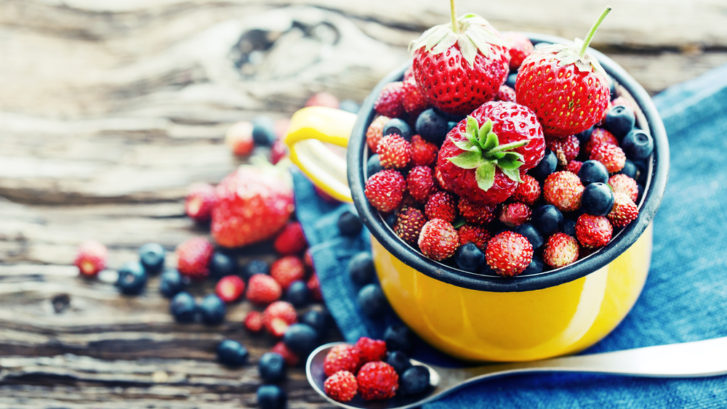The Dirty Dozen
One thing that most of us have in common is the desire to live a long & healthy life. Part of reaching that goal includes getting adequate amounts of rest, exercise, fresh air and eating a healthy diet. Our diet is a large part of who we are and really contributes to our current state of health. So what should a healthy diet include? Food from the seven food groups of course, but especially fruits and veggies.
Have you heard the term “Dirty Dozen” buzzing around lately online and in the news? Many people will argue the point that organic produce is costly and when compared to non organic produce, it is all the same. But this is far from the truth. There is actually a list of fruits and veggies known as the Dirty Dozen that we must all look out for. Why? When it comes to non organic produce, there are many pesticides used in the farming process, to kill insects and protect the produce. Although these pesticides are successful at doing that, these from the dirty dozen are the fruits and veggies that are the most contaminated. Some of the pesticide residue still remains even after washing and peeling in some cases.
The fruits and veggies on the dirty dozen list include: Peaches, apples, sweet bell peppers, nectarines, celery, strawberries, cherries, spinach, imported grapes, lettuce, potatoes and pears.
What does this mean in terms of health? While eating fruits and veggies do help us remain healthy, eating those from the dirty dozen may actually contribute to a few medical problems. Pesticide residue is ingested when we eat this produce and has been shown to cause certain types of cancer, disrupt reproductive function and affect the endocrine system. In addition to these medical issues, heavy toxicity from these pesticides have also been shown to cause birth defects and neurological problems in unborn children.
If you simply cannot afford organic, you may avoid the dirty dozen altogether and buy certain fruits and veggies that are non-organic, but safe from pesticides. These fruits and veggies have very little to none in terms of pesticide residue, or their outer skins are so tough, this prevents any pesticides from touching their edible parts. These include: eggplant, avocado, asparagus, mango, pineapples, kiwi, bananas, cabbage, sweet potatoes, watermelon, cauliflower and cantaloupe. In the end, making even moderate changes to our diet can make a world of difference in overall health and longevity. We are truly what we eat!

